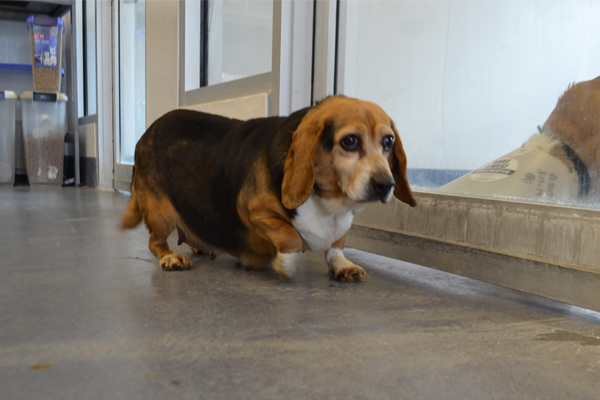New Ordinances Ban Sale of Puppy Mill Pets in Chicago and Cook County
by Julie Mazzola | Apr 30, 2014
Chicago City Council and the Cook County Board of Commissioners passed new ordinances prohibiting pet stores from selling dogs, cats and rabbits purchased from for-profit breeders and puppy mills.

Chicago and Cook County have proudly joined dozens of municipalities across the United States in taking a stand against puppy mills and their inhumane breeding practices. That’s because on March 5 and April 9, the Chicago City Council and the Cook County Board of Commissioners respectively passed new ordinances prohibiting pet stores from selling dogs, cats and rabbits purchased from for-profit breeders and puppy mills.
“This ordinance cuts off the pipeline of animals coming into our city from the horrendous puppy mill industry and opens up a new opportunity for animals already in shelters who need a loving home to be adopted into,” said first-term City Clerk Susana Mendoza, who introduced and championed the Chicago ordinance.
Concerned about the inhumane conditions at large breeding operations, Commissioner John Fritchy sponsored Cook County’s groundbreaking legislation. “If I cannot regulate them directly because they are out of state, we’re going to try to cut off the demand for those dogs and cats here, and at the same time, reduce the number euthanized in shelters,” he said.
Both laws mandate that retailers can only sell rescue animals; dogs, cats and rabbits obtained from government pounds, humane societies or animal rescue groups rather than for-profit operations derided by critics as “puppy mills.”
“This is going to help change the face of the homeless pet issue in Chicago and Cook County and will have a ripple of positive effects,” said Paula Fasseas, Founder and Chair of PAWS Chicago, who testified in support of the ordinances. “We should also see a drop in relinquishments by owners who have purchased a puppy from a pet store and find that it is too much work or medical bills are too expensive. And let’s not forget the taxpayer benefit,” she said. “There will be less of a burden because fewer animals would be winding up at city impoundment facilities.”
A major voice and force of influence on this issue is Cari Meyers, founder and president of the Chicago-based Puppy Mill Project, which worked for more than two years alongside Mendoza and Fritchy on developing the ordinances. Meyers, a staunch partner in this fight and the endless battle to ban puppy mills, has described them as “puppy hell,” saying females spend their lives in cages, are bred as often as possible until they no longer can, and then “disposed of by the mills. This is a largescale, systematic animal cruelty at its absolute worst.”
The ordinances would not affect the sale of pets via the Internet, by small scale breeders who don’t sell in stores or veterinarians who sell animals from their clinics. It would, however, affect 13 suburban pet stores and 16 businesses across the city, including Pocket Puppies in Lincoln Park, which sells small dogs at $850 to $4,000 a pup.
“Our goal has never been to put pet stores out of business,” said Meyers. “We are offering to work with pet stores throughout the city to help them develop an adoption model that works best for them.”
The Cook County ordinance goes into effect in October 2014 while Chicago’s ordinance takes effect on March 6, 2015. Violators in Cook County can face fines of up to $500 for each banned animal sold, while those in Chicago could be fined up to $1,000 a day or, in the case of repeat offenses, charged with a misdemeanor.
